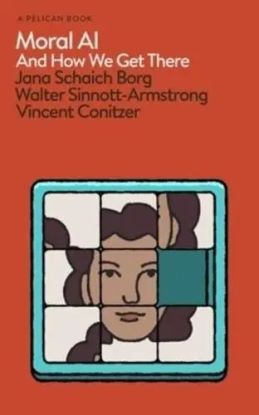Pelican Publishing strana 2 z 2
vydavateľstvo
The Blue Commons
The sea provides more than half the oxygen we breathe, food for billions of people and livelihoods for hundreds of millions. But giant corporations are plundering the world's oceans, aided by global finance and complicit states, following the neoliberal maxim of Blue Growth. The situation is dire: rampant exploitation and corruption now drive all aspects of the ocean economy, destroying communities, intensifying inequalities, and driving fish populations and other ocean life towards extinction.
The Blue Commons is an urgent call for change, from a campaigning economist responsible for some of the most innovative solutions to inequality of recent times. From large nations bullying smaller nations into giving up eco-friendly fishing policies to the profiteering by the Crown Estate in commandeering much of the British seabed, the scale of the global problem is synthesised here for the first time, as well as a toolkit for all of us to rise up and tackle it.
The oceans have been left out of calls for a Green New Deal but must be at the centre of the fight against climate change. How do we do it? By building a Blue Commons alternative: a transformative worldview and new set of proposals that prioritise the historic rights of local communities, the wellbeing of all people and, with it, the health of our oceans.
Vypredané
27,08 €
28,50 €
Architecture
A groundbreaking history of architecture told through the relationship between buildings and energy
The story of architecture is the story of humanity. The buildings we live in, from the humblest pre-historic huts to today's skyscrapers, reveal our priorities and ambitions, our family structures and power structures. And to an extent that hasn't been explored until now, architecture has been shaped in every era by our access to energy, from fire to farming to fossil fuels.
In this ground-breaking history of world architecture, Barnabas Calder takes us on a dazzling tour of some of the most astonishing buildings of the past fifteen thousand years, from Uruk, via Ancient Rome and Victorian Liverpool, to China's booming megacities. He reveals how every building - from the Parthenon to the Great Mosque of Damascus to a typical Georgian house - was influenced by the energy available to its architects, and why this matters.
Today architecture consumes so much energy that 40% of the world's greenhouse gas emissions come from the construction and running of buildings. If we are to avoid catastrophic climate change then now, more than ever, we need beautiful but also intelligent buildings, and to retrofit - not demolish - those that remain. Both a celebration of human ingenuity and a passionate call for greater sustainability, this is a history of architecture for our times.
The Power of Language
Why should we learn more than one language?
Can it change the way we think?
Does it have the power to transform how we see the world?
You may think you speak only one language. In fact, your mind is interpreting multiple codes of communication. Some people speak Spanish, some Mandarin. Some speak poetry, some are fluent in maths. Humans are built for multilingualism.
Drawing on cutting-edge research and theory, delivered with wit and lucid insight, psycholinguist Viorica Marian explores the ways in which the mind uses multiple languages and how, in doing so, we can open the doors to unique forms of creativity, brain health and cognitive control. Every new language we speak - whether it is coding or musical notes, Hindi or Arabic - shapes how we extract and interpret information. It alters what we remember, how we perceive ourselves and those around us, how we feel, the insights we have, the decisions we make and the actions we take.
The Power of Language lays bare how we use different linguistic codes to think about the world - and change our place within it. Empowering and practical, this is the perfect guide for anyone interested in how language really works.
Vypredané
24,65 €
25,95 €
The Holocaust
An authoritative, revelatory new history of the Holocaust, from one of the leading scholars of his generation
The Holocaust is much-discussed, much-memorialized and much-portrayed. But there are major aspects of its history that have been overlooked.
Spanning the entirety of the Holocaust and across the world, this sweeping history deepens our understanding. Dan Stone reveals how the idea of 'industrial murder' is incomplete: many were killed where they lived in the most brutal of ways. He outlines the depth of collaboration across Europe, arguing persuasively that we need to stop thinking of the Holocaust as an exclusively German project. He also considers the nature of trauma the Holocaust engendered, and why Jewish suffering has yet to be fully reckoned with. And he makes clear that the kernel to understanding Nazi thinking and action is genocidal ideology, providing a deep analysis of its origins.
Drawing on decades of research, The Holocaust: An Unfinished History upends much of what we think we know about the Holocaust. Stone draws on Nazi documents, but also on diaries, post-war testimonies and even fiction, urging that, in our age of increasing nationalism and xenophobia, we must understand the true history of the Holocaust.
Vypredané
27,50 €
28,95 €
Aristotle
Why has Aristotle had such an astounding influence on the world? What are his key ideas? What can he still teach us today?
The Lyceum in Athens, now a ruin, has a claim to be the most significant place in human history. It is the site of Aristotle's school. Here the philosopher taught and discussed the answers to the deepest mysteries of the human condition, and changed the way we think.
Today, it can be difficult to fully comprehend the staggering influence of Aristotle's lessons. Yet his observations about the world around him and his reflections on the nature of knowledge laid the foundations for all empirical science. His study of rational thought formed the basis of formal logic, the cornerstone of philosophical investigation. His examination of Greek city-states gave us political science, while his analysis of drama remains a mainstay of literature courses around the world.
Acclaimed philosopher John Sellars takes us on a journey through Aristotle's thought, vividly bringing to life his key ideas, and demonstrating that the famous philosopher's capacity for curiosity continues to offer us all a vision of more fulfilled lives. The lessons of Aristotle, he shows, still have much to teach us today.
Traditionalism
The definitive guide to Traditionalism: the world's least-known major philosophy, but one that is essential for understanding our past, present and future
Traditionalism is founded on ancient teachings that, its followers argue, have been handed down from time immemorial, forming a basis of the sacred order that must be defended from modernity and the disorder it brings. It has been used to encourage respect for the environment, compose great music and reduce hostility between followers of different religions.
But Traditionalism has applied to darker causes: from the election of Donald Trump to fascist movements and even terrorism. How has Traditionalism been so influential for so long, yet so little acknowledged and understood? Its followers have never aimed to reach the masses and have sought to affect the world quietly. In this book, the first of its kind for a wide audience, Traditionalism's history, ideas and profound impact are laid out, shining a light onto this shadowy world and the thought of its three founders, René Guénon, Julius Evola and Frithjof Schuon.
Once you understand Traditionalism, you will see its influence everywhere.
Moral AI
A balanced and thought-provoking guide to all the big questions about AI and ethics
Can computers understand morality? Can they respect privacy? And what can we do to make AI safe and fair?
The artificial intelligence revolution has begun. Today, there are self-driving cars on our streets, autonomous weapons in our armies, robot surgeons in our hospitals - and AI's presence in our lives will only increase. Some see this as the dawn of a new era in innovation and ease; others are alarmed by its destructive potential. But one thing is clear: this is a technology like no other, one that raises profound questions about the very definitions of human intelligence and morality.
In Moral AI, world-renowned researchers in moral psychology, philosophy, and artificial intelligence - Jana Schaich Borg, Walter Sinnott-Armstrong and Vincent Conitzer - tackle these thorny issues head-on. Writing lucidly and calmly, they lay out the recent advances in this still nascent field, peeling away the exaggeration and misleading arguments. Instead, they offer clear examinations of the moral concerns at the heart of AI programs, from racial equity to personal privacy, fake news to autonomous weaponry. Ultimately, they argue that artificial intelligence can be built and used safely and ethically, but that its potential cannot be achieved without careful reflection on the values we wish to imbue it with. This is an essential primer for any thinking person.






